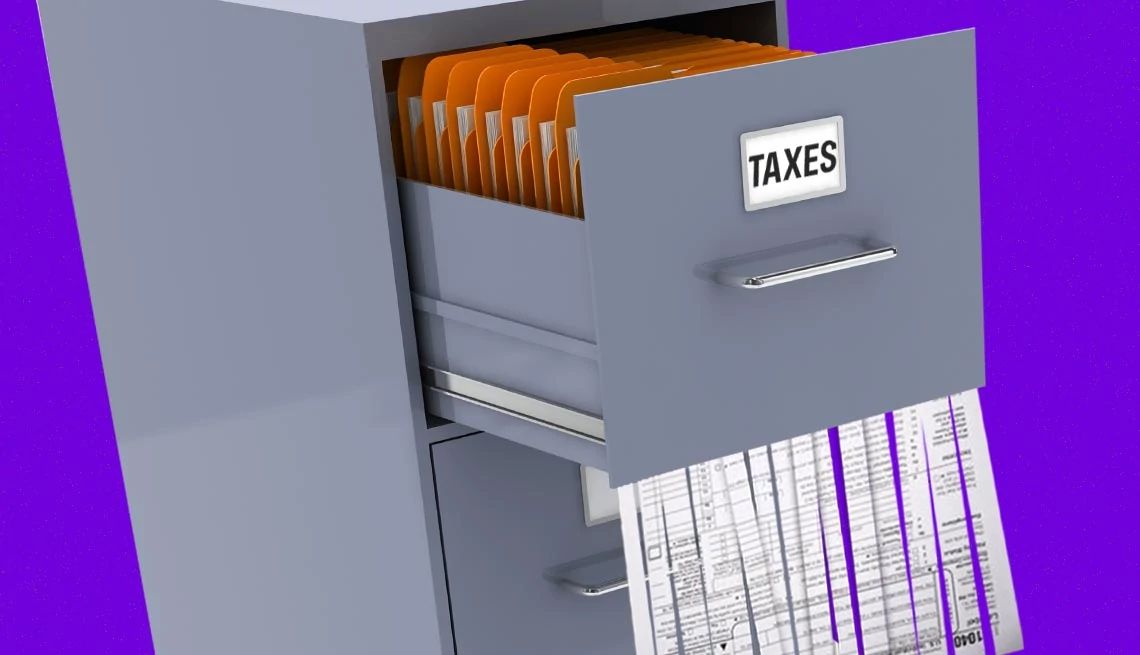
How long do you need to keep tax records?
- Select a language for the TTS:
- UK English Female
- UK English Male
- US English Female
- US English Male
- Australian Female
- Australian Male
- Language selected: (auto detect) - EN
Play all audios:

If you failed to file a return, or you filed a fraudulent return, there’s no statute of limitations for assessment of the taxes you owe. LONGER THAN 7 YEARS You may need to keep records long
term related to assets that have increased or decreased in value since you purchased them, Allec says. This could include real estate, interest in a business, a Roth IRA and other certain
assets. Why? Because when you sell an asset after holding it for many years, you’ll be asked to prove the cost basis — that is, the amount you paid for it. For example, when you sell a
property at a significant profit, you’ll likely owe capital gains tax. Calculating your capital gain often requires you to hang on to documents showing the purchase price, the cost of any
improvements, insurance claims and refinancing for three years after you sell and report it on your tax return. You’ll need these records to calculate the cost basis for the property, which
is the actual cost adjusted up or down by other factors, such as major improvements to the structure. But depending on their profit, many people can avoid paying capital gains tax on the
sale of their home. When selling a primary residence, those filing individual returns can exclude up to $250,000 in gains from taxes and couples filing jointly can exclude up to $500,000.
You must have lived in the home for at least two of the past five years to qualify for the exclusion. Even so, you’ll need to save your real estate closing statement for at least three years
after selling the property. If you don’t meet the requirements to avoid paying capital gains tax on the sale of your home, you’ll need to retain records of significant home improvements for
at least three years after the sale. IRS Publication 523, “Selling Your Home,” specifies what improvements you can add to your home’s cost basis to reduce your capital gains bill. The same
applies for rental property. In addition, keep records of any inherited property and its value when the owner died, which will become your tax basis. Most brokerages will compute your cost
basis for stocks, bonds and mutual funds, although they are only required to calculate your cost basis for stock transactions since 2011 and mutual funds since 2012. Still, it’s a good idea
to keep all your transaction records in case you change brokers, since brokers are not obligated to hold your records indefinitely. Here are the documents you should keep longer than seven
years: * Receipts and documents related to home sales and improvements. * Records of fair market value of inherited property at time of original owner’s death. * Investment transaction
records. * Retirement account records such as Form 5498 showing IRA contributions. HOW TO ORGANIZE YOUR TAX RECORDS Maintaining some semblance of order after you file returns, rather than
tossing papers into a file cabinet or a shoebox, will come in handy if the IRS has questions later on. “It's easy to feel overwhelmed this time of year, as financial documents seem to
come in every day by mail or by email,” says Chris Benson, CPA and member of the American Institute of CPA’s Strategic Tax Reform Advisory Group. “We often see people put all those documents
into one box or one folder on their computer, and then when they need them, it’s impossible to find what they need.” To avoid clutter, consider converting paper documents to electronic
files by scanning them and storing them on a password-protected cloud service such as Dropbox, Google Drive or Microsoft OneDrive. Benson and Allec recommend using digital folders to
organize documents from each tax year so that you can locate tax records easily when you need them. Give each file a descriptive name, such as “2024 charitable donation receipts.” If you’re
not comfortable storing tax records electronically, Allec cautions against keeping them in cardboard boxes or other places where they could get damaged or destroyed if there’s a fire, flood
or other natural disaster. “If you really want to be secure with your paper documents, use fireproof storage,” he advises. Find Your State's Tax Guide Learn more about your state’s tax
policies and tax breaks. Check back for updates and new guides. Select Your State
